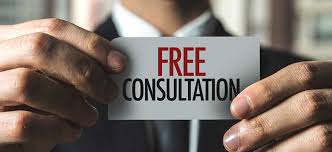
In the world of sales, knowing how to close a deal effectively is what separates top performers from the rest of the pack. Closing is not just about ending a sales interaction but about concluding it in such a way that all parties feel satisfied and ready to proceed. Below we’ll get into strategic approaches as well as techniques that empower sales professionals to close deals more effectively, ensuring customer commitment and enhancing business outcomes.
Closing deals culminates the efforts invested in the sales process. It requires understanding, timing, and also the ability to read client signals correctly. By mastering how to close a deal, salespeople can not only increase their success rate but also build stronger, lasting relationships with their clients.
Understanding the Closing Process
The process of closing a deal begins long before the final handshake. It is woven throughout the entire sales interaction, starting from the first contact with a potential client. Effective closing is built on a foundation of trust and mutual benefit, where the salesperson understands and aligns with the client’s needs and desires.
Establishing Trust
Trust is the cornerstone of any sales relationship. When clients trust a salesperson, they are more likely to accept their recommendations and also agree to a deal. Building trust involves consistent honesty, professionalism, as well as showing genuine interest in solving the client’s problems.
Aligning with Client Needs
Understanding the client’s needs thoroughly allows salespeople to tailor their pitches and offerings accordingly. This alignment is crucial in demonstrating how a product or service perfectly fits what the client is looking for, making the decision to close much more straightforward.
Strategies on How to Close a Deal
There are several effective strategies that can help sales professionals secure a commitment and successfully close a deal. Implementing these strategies requires practice and a deep understanding of the sales dynamics at play.
Effective Communication
Clear and effective communication is vital when closing a deal. It’s important to articulate the benefits and value of an offering in a way that addresses the client’s specific concerns. This means highlighting how your solution meets their unique needs or solves their particular problems.
Handling Objections
Objections are a natural part of the sales process and also knowing how to handle them adeptly is key to knowing how to close a deal. Salespeople should welcome objections as they offer an opportunity to clarify doubts and reinforce the value of the offering. Addressing objections effectively requires patience, understanding, as well as the ability to turn challenges into selling points.
Creating a Sense of Urgency
Without being pushy, creating a sense of urgency can encourage clients to make a decision. This can be achieved by highlighting the limited availability of the product, special conditions of the offer, or the immediate benefits of using the solution. However, it’s crucial that this urgency is genuine and not just a sales tactic.
The Art of the Final Pitch
The final pitch is a crucial component in how to close a deal. This is where everything you have discussed and promised should come together in a clear and compelling summary.
Summarize the Value
Reiterating the value proposition in a concise and powerful way can solidify the client’s understanding and inclination towards the deal. Highlight key benefits, ROI, and, if possible, use testimonials or case studies that demonstrate the success of your product or service.
Ask for the Sale
Often, deals are not closed simply because the salesperson hesitates to ask for the sale. Be direct and confident when asking the client to take the final step. This could be through a simple question like, “Shall we proceed with the paperwork?” or “Can we finalize this today?”
Closing Techniques to Master
Beyond strategies, there are specific techniques that can enhance how to close a deal. These techniques should be adapted to fit the style of the salesperson and the nature of the deal.
The Assumptive Close
This technique involves assuming that the client is ready to proceed and moving forward with the next steps as if they had already said yes. This can help bypass minor hesitations and also expedite the closing process.
The Now or Never Close
For deals that genuinely have an element of urgency or scarcity, communicating this to the client can motivate them to act immediately. This approach works well when there are time-sensitive discounts or limited stock available.
Refining Your Closing Strategy
Knowing how to close a deal is a skill that can dramatically impact a salesperson’s effectiveness and career. By continually refining your approach, practicing different techniques, as well as staying attuned to the client’s responses, you can improve your closing rates significantly. Every sales interaction provides a learning opportunity, and each client interaction can refine your ability to close deals effectively. With persistence and practice, the art of closing becomes a defining skill in your sales arsenal, leading to more successful outcomes and satisfied customers.

